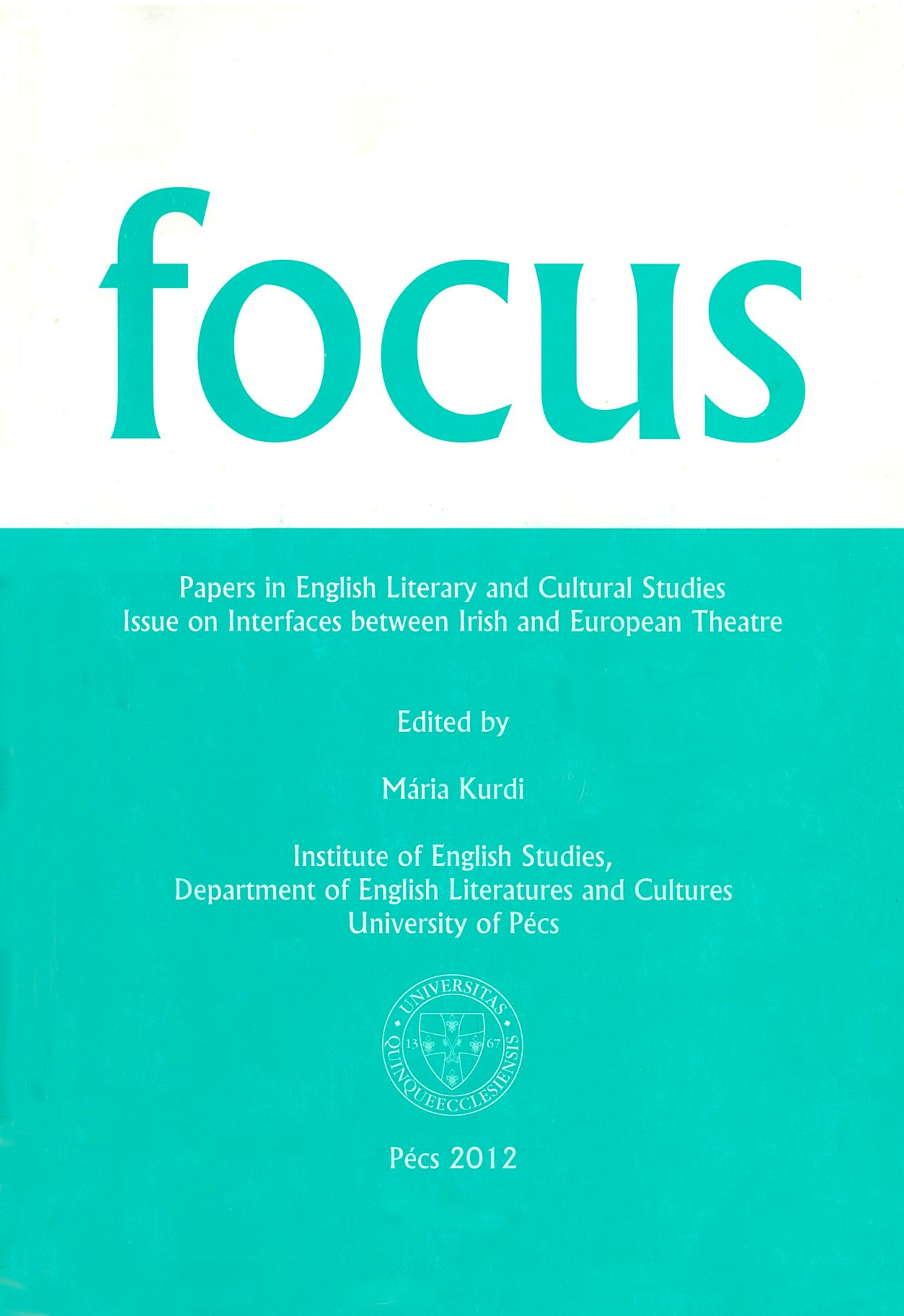Guests, Hosts, and Ghosts: Variations of Hostipitality (Hospitality/Hostility) on the Irish and the Continental Stage
DOI:
https://doi.org/10.15170/Focus.8.2012.1.105-114Keywords:
hospitality, hostility, guest, host, Irish theatre, J. M. Synge, Declan Hughes, Brian Friel, Conor McPhersonAbstract
Languages harbor diverse memories within their vocabulary, often overlooked in tracing words back to their origins. Investigating these roots can unveil essential links between commonly used terms. For example, in Hungarian, "guest" (vendég) and "stranger" (idegen) share an etymological root, reflecting the inherent connection between guests and strangers. Similarly, English terms like "host" and "guest" derive from the same etymological source, as demonstrated by J. Hillis Miller. Jacques Derrida further explores the interplay between "hospitality" and "hostility," leading to the concept of "hostipitality," which encapsulates the inherent ambivalence in the guest/host relationship. This awareness underscores the constant flux between acceptance and rejection, reflecting the dynamic nature of human interaction. The dramatic potential of the guest/host relationship is evident throughout history, with the arrival of visitors serving as a frequent dramatic device. These arrivals often disrupt the lives of hosts, leading to imprisonment, betrayal, or other dramatic outcomes. Such examples highlight how guests can profoundly influence and even haunt the lives of their hosts, shaping dramatic narratives with their presence. The present article focuses on Irish plays in which the guest/host motif is central, as in J. M. Synge’s The Playboy of the Western World, Brian Friel’s Translations and The Communication Cord, Declan Hughes’ Halloween Night, and his new version of Molière’s Tartuffe, or Conor McPherson’s The Seafarer.
Downloads
Published
How to Cite
Issue
Section
License

This work is licensed under a Creative Commons Attribution-NonCommercial-NoDerivatives 4.0 International License.
FOCUS: Papers in English Literary and Cultural Studies follows the principles laid down by Creative Commons, which provides guarantees for the Author’s copyright while also ensuring that intellectual properties are made available for the wider public in a digital form. All papers submitted to the journal apply the following licence conditions (indicated on the journal’s website as well as in individual publications):
“© This work is licensed under a Creative Commons Attribution-NonCommercial-NoDerivatives 4.0 International License.”
You are free to:
- Share, copy and redistribute the material included in the journal in any medium or format under the following terms:
- Attribution — You must give appropriate credit to the Author, and indicate the original place of publication [FOCUS: Papers in English Literary and Cultural Studies, Issue nr., page numbers.].
- NonCommercial — You may not use the material for commercial purposes.
- NoDerivatives — You are not allowed to remix, transform, or build upon the material.
- The above conditions must always be indicated if the journal material is distributed in any form.
- The above conditions must always be met, unless a written permission signed by the Author and the Editor-in-Chief states otherwise.

